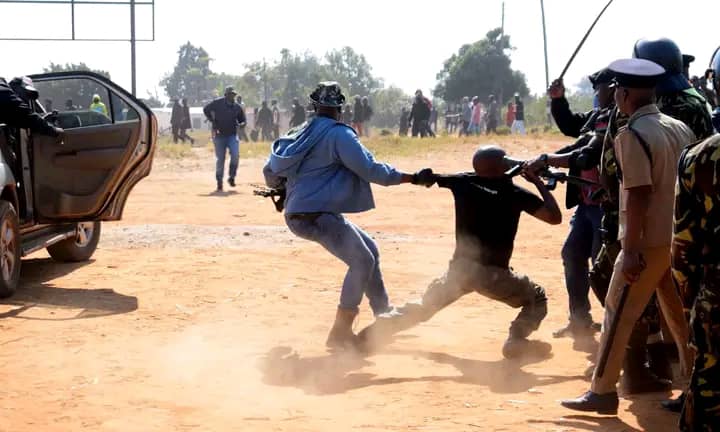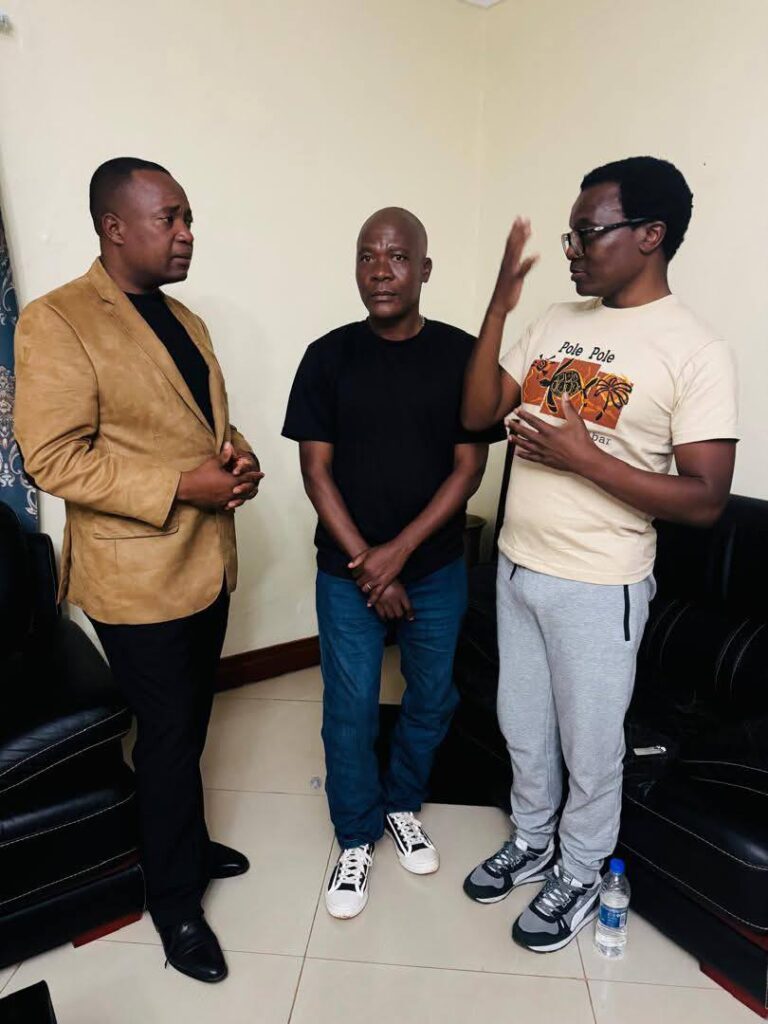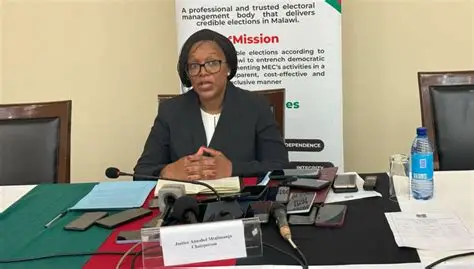As Malawi edges toward its September 16 general elections, one political posture looms over the nation with growing unease. Street protests championed by some bogus citizen activists and echoed by a smattering of opposition parties.
But beneath the placards and drumbeats lies a troubling question: If the electoral system is truly flawed, why have no opposition parties sought redress in court or engaged meaningfully with the Malawi Electoral Commission (MEC) or join in these protests?
Instead, they outsource the political dirty work to so‑called ‘civil society’ groups, a move that reeks of cynicism and opportunism.

On July 8, Lilongwe District Commission office received a notice from a group called “Concerned Citizens”. The letter requested permission for a demonstration scheduled for July 17 under the banner of exposing “violence” or system malpractice as Malawi moves toward voting day.
Yet the memo carried a thinly veiled threat: unless MEC opens its data for auditing, no electoral nominations will be accepted.
That language “otherwise, we will not allow others to collect nomination papers” echoes an orchestrated power play, not a public petition, but an attempt to preempt the democratic process.
A civic voice, Billy Malata publicly expressed alarm: “Musamagende katauluka… If there are real irregularities big enough to cancel elections, courageous leaders and parties would challenge MEC in court, not hold the entire country hostage.”
Ironically and amidst all the threats, while the civic space is full of people like the Concerned Citizens and the Silvester Namiwas of this world who are aggressively planning protests every day, opposition political parties, those who stand to gain or lose seats, remain largely off stage.

UTM, UDF, PP, and even the DPP have lent rhetorical support, but none has filed court cases or lodged formal complaints with MEC or let alone join the so-called activists in the streets.
Why not?
If true obstruction exists, such as faulty biometric systems or improper Smartmatic usage, as claimed, one expects at least one opposition political party to challenge MEC directly in court, or at least demand hearings and inter-agency investigations.
Court cases are the standard play for parties with constitutional grievances.
Instead, they echo CSO slogans, call for anonymous “audits” and street accountability, and then fade back to private briefings, leaving grassroots activists to risk their safety.
This raises the unavoidable conclusion: these opposition parties know fully well that MEC has acted within its legal framework. Their marches and banners reflect a political war, not a civic crusade.
And Malata rightly asks and exposes double‑games and agency laundering: “If there were real problems, parties would take MEC to court. Instead, they’re sending street crews out to stir trouble and take photos.”
The pattern emerges. Arrange a demonstration, send a press release to donors or embassies, then stand back to let the brokers claim legitimacy. For international observers, it looks like grassroots energy, but pay attention to who financed the megaphones and tents.
If street credibility matters, why are these protests not plastered with civic catchphrases curated by genuine and credible CSOs?
Namiwa’s loud voice, claiming to “advocate on behalf of the people,” echoes a dangerous distrust that political parties lack confidence in their own legal arguments.
If MEC misbehaves, judicial proceedings or parliamentary hearings are routes to fix the fault. Instead, we get threatening letters to the District Commission, and vague pact ultimatums.
If the opposition believed MEC was broken, they would sue MEC, then citizens would march along legal landmarks, not protest cords.
Instead, politicians let bogus civil society leaders light torches but don’t join the path to reform. It smells of political convenience and cowardice, not democratic courage.
Don’t mistake buzzing megaphones for civic energy. When political parties don’t risk court challenges, when civic groups trade logos for megaphones, the product isn’t reform—it’s fear.
Any real insistence on electoral fairness needs formal procedures such as court petitions by parties; parliamentary oversight committees; MEC-led briefings; and independent auditors with public reporting mandates.
What citizens see now is a mistrustful shadow politics, not real demand for transparency, but economic brinkmanship to disrupt voting.

MEC has offices in all the districts across the country and open throughout this election period. Any candidate could lodge grievances at those offices. No party or candidate has so far done that. Not even the one whose leaders hyperventilated over the alleged audit black holes.
In mature democracies, political frictions are litigated, debated, and resolved in legal halls. Street politics is for advocacy, anger, or remembrance, not primary venues to charge for ballot misuse.
Malawian politicians have to learn that street threats scare voters.
But it appears the plan has been set in motion. If the opposition ensures no one can trust MEC, they can make any election claim “rigged.” And when the vote outcome doesn’t favor them, they pull the well-worn chord of “I told you so.”
This is not democracy, it’s political insurance rooted not in principle, but in fear of losing. By hiding behind CSO faces, political parties avoid responsibility and the voters shoulder the instability.
Real democracy is messy. But it means owning results. It means having the discipline to live with decisions, or fight them on equal constitutional ground.
If you truly believe the electoral system is flawed, why haven’t you tried to fix it through official channels? If the systems are broken, let’s make them right, with law, process, transparency, and public validation, not crowd control and cell phone footage.
To the Concerned Citizens group and everyone in between: demand the system. But demand it through recognized avenues. Let’s not outsource our democracy to threats, but to laws. Let politicians fight their case in courts, not hire us to choke the city with drums, graffiti, anarchy and chaos.
Malawi’s fate rests not on who screams loudest in the square but who stands firm under subpoena, constitutional clause, and honest judgment.








